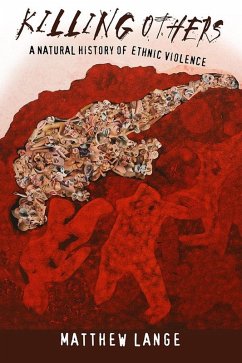Killing Neighbors is a fine contribution to the literature on the Rwandan genocide and offers a different kind of explanation for what occurred that accommodates the differentiation in actions among Hutu at the local level. This micro-sociological approach is welcome as community level understandings of the political can be quite different from centralized narratives. It is difficult to imagine a situation in which it is more important to capture both perspectives than the Rwandan genocide. ¿ Sandra Joireman ¿ Nations and Nationalism
In the horrific events of the mid-1990s in Rwanda, tens of thousands of Hutu killed their Tutsi friends, neighbors, even family members. That ghastly violence has overshadowed a fact almost as noteworthy: that hundreds of thousands of Hutu killed no one. In a transformative revisiting of the motives behind and specific contexts surrounding the Rwandan genocide, Lee Ann Fujii focuses on individual actions rather than sweeping categories.
Fujii argues that ethnic hatred and fear do not satisfactorily explain the mobilization of Rwandans one against another. Fujii's extensive interviews in Rwandan prisons and two rural communities form the basis for her claim that mass participation in the genocide was not the result of ethnic antagonisms. Rather, the social context of action was critical. Strong group dynamics and established local ties shaped patterns of recruitment for and participation in the genocide.
This web of social interactions bound people to power holders and killing groups. People joined and continued to participate in the genocide over time, Fujii shows, because killing in large groups conferred identity on those who acted destructively. The perpetrators of the genocide produced new groups centered on destroying prior bonds by killing kith and kin.
In the horrific events of the mid-1990s in Rwanda, tens of thousands of Hutu killed their Tutsi friends, neighbors, even family members. That ghastly violence has overshadowed a fact almost as noteworthy: that hundreds of thousands of Hutu killed no one. In a transformative revisiting of the motives behind and specific contexts surrounding the Rwandan genocide, Lee Ann Fujii focuses on individual actions rather than sweeping categories.
Fujii argues that ethnic hatred and fear do not satisfactorily explain the mobilization of Rwandans one against another. Fujii's extensive interviews in Rwandan prisons and two rural communities form the basis for her claim that mass participation in the genocide was not the result of ethnic antagonisms. Rather, the social context of action was critical. Strong group dynamics and established local ties shaped patterns of recruitment for and participation in the genocide.
This web of social interactions bound people to power holders and killing groups. People joined and continued to participate in the genocide over time, Fujii shows, because killing in large groups conferred identity on those who acted destructively. The perpetrators of the genocide produced new groups centered on destroying prior bonds by killing kith and kin.
Dieser Download kann aus rechtlichen Gründen nur mit Rechnungsadresse in A, D ausgeliefert werden.









